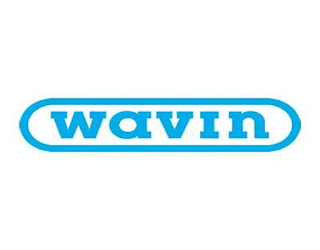Types Of Plumbing Pipe Connectors
Metal Pipes
1. They include pipes made from iron, copper, stainless steel, brass and galvanized steel.
2. Brass and copper have high resistance to corrosion which has conventionally made them a preferred piping material in homes.
3. Galvanized steel pipes are also resistant to rust and corrosion and can withstand mineral deposits which extends the longevity of the pipes.
4. Not all metal pipes are safe for supplying drinking water as they can corrode or rust over time and contaminate the water.
5. Metal pipes are also subject to high wear and tear and cracks can cause leaks in the system, and also damage the structure in the long run.
Plastic Pipes
1. Plastic pipes are either polyvinyl chloride (PVC), chlorinated polyvinyl chloride (CPVC) or cross-linked polyethylene (PEX), which are all thermoplastics.
2. PVC is a low-cost, lightweight, corrosion and rust-resistant piping material which is suitable for installation in domestic constructions and for the supply of drinking water.
3. CPVC pipes have the same benefits as PVC pipes with the added advantage of being heat-resistant due to the added chlorine. This makes these pipes suitable for transporting hot water as well.
4. PEX pipes are weather resistant, flexible and extremely durable, making them an ideal choice for installation in areas where there are extreme weather conditions.
5. Plastic water pipes have higher longevity as compared to metal pipes as they can withstand water pressure and damage.
6. The joints in plastic pipes do not need special techniques and their flexibility also reduces the chances of leakages at joints.
7. Plastic pipes are eco-friendly and can be recycled after one use, which may extend up to 100 years.
For sustainable water piping system solutions, get in touch with Wavin. Internationally acclaimed for their innovative services and solutions for water management, Wavin brings its products to India to help engage stakeholders and contribute for a better tomorrow.
1. They include pipes made from iron, copper, stainless steel, brass and galvanized steel.
2. Brass and copper have high resistance to corrosion which has conventionally made them a preferred piping material in homes.
3. Galvanized steel pipes are also resistant to rust and corrosion and can withstand mineral deposits which extends the longevity of the pipes.
4. Not all metal pipes are safe for supplying drinking water as they can corrode or rust over time and contaminate the water.
5. Metal pipes are also subject to high wear and tear and cracks can cause leaks in the system, and also damage the structure in the long run.
Plastic Pipes
1. Plastic pipes are either polyvinyl chloride (PVC), chlorinated polyvinyl chloride (CPVC) or cross-linked polyethylene (PEX), which are all thermoplastics.
2. PVC is a low-cost, lightweight, corrosion and rust-resistant piping material which is suitable for installation in domestic constructions and for the supply of drinking water.
3. CPVC pipes have the same benefits as PVC pipes with the added advantage of being heat-resistant due to the added chlorine. This makes these pipes suitable for transporting hot water as well.
4. PEX pipes are weather resistant, flexible and extremely durable, making them an ideal choice for installation in areas where there are extreme weather conditions.
5. Plastic water pipes have higher longevity as compared to metal pipes as they can withstand water pressure and damage.
6. The joints in plastic pipes do not need special techniques and their flexibility also reduces the chances of leakages at joints.
7. Plastic pipes are eco-friendly and can be recycled after one use, which may extend up to 100 years.
For sustainable water piping system solutions, get in touch with Wavin. Internationally acclaimed for their innovative services and solutions for water management, Wavin brings its products to India to help engage stakeholders and contribute for a better tomorrow.



Comments
Post a Comment